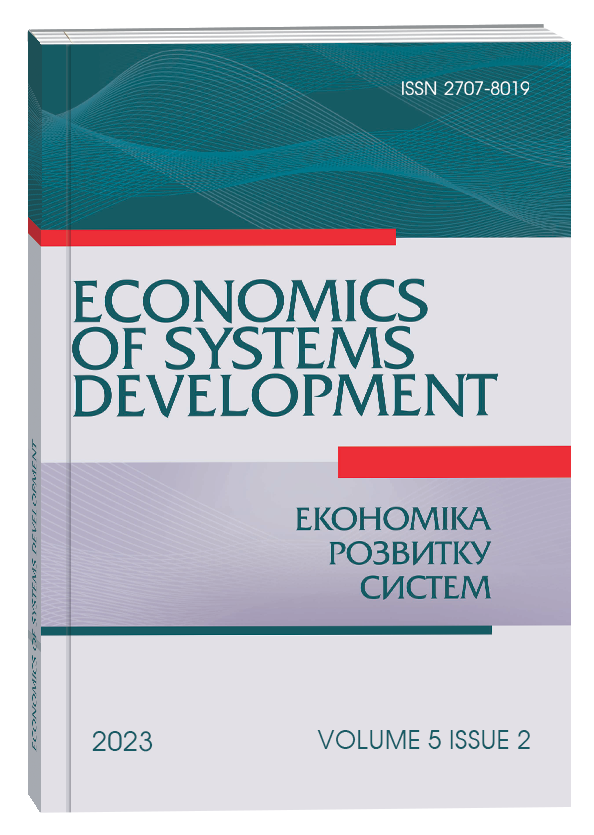COMPARATIVE CHARACTERISTICS OF THE MANAGERIAL AND ECONOMIC ASPECTS OF DIGITAL BUSINESS TRANSFORMATION
Анотація
Digital transformation is a key element of modern business that impacts its management and economic development. The article is dedicated to the analysis of the essence and importance of digital transformation in the context of managerial and economic aspects. The key factors and manifestations of digital transformation in the business environment are studied, particularly its impact on business models, internal work processes and interaction with consumers. It has been determined that new digital platforms and services can create innovative ways to generate revenue and attract new customers. The article focuses on strategic planning as a necessary stage before the implementation of digital transformation. Before implementing digital initiatives, it is extremely important to conduct an analysis, clearly define goals and objectives, and understand how they will be integrated into the overall development strategy of the company. The study confirmed that leadership plays a critical role in the process of implementing technology initiatives. The effective contribution of leadership involves its active engagement in this process, facilitating the adoption of well-founded strategic decisions, and providing the necessary resources for the successful realization of initiatives. The article emphasizes that successful digital transformation requires not only technological changes, but also cultural ones, corporate culture should be aimed at accepting changes and being ready to adapt to the new digital environment. Research shows that successful implementation of digital initiatives requires employees to develop new skills, as well as flexibility and readiness for constant change, not only for IT professionals, but also for all levels of staff. The article highlights the significance of collaboration and partnership in modern business during digital transformation, emphasizing the opportunities presented by digital technologies to enhance interaction with partners and increase the efficiency of business processes.
Посилання
Ostrovska, H., Tsikh, H., Strutynska, I., Kinash, I., Pietukhova, O., Golovnya, О., & Shehynska N. (2021) Building an effective model of intelligent entrepreneurship development in digital economy. Eastern-European Journal of Enterprise Technologies, vol. 6 (13 (114)). Available at: https://journals.uran.ua/eejet/article/view/244916 (accessed on 20.08.2023)
Tang, W., & Yang, S. (2022) Digital Transformation and Firm Performance in the Context of Sustainability: Mediating Effects Based on Behavioral Integration. Journal of Environmental and Public Health. Available at: https://www.hindawi.com/journals/jeph/2022/8220940/ (accessed on 20.08.2023)
Vorzhakova, Yu., & Khlebynska, O. (2021) The essence of digital transformation from position of entrepreneurs and scientists. Economy and the state, vol. 9. Available at: https://www.economy.in.ua/pdf/9_2021/19.pdf (accessed on 20.08.2023)
SAP (2023). Available at: https://www.sap.com/insights/what-is-digital-transformation.html (accessed on 20.08.2023)
Kelley, R. (2023) Six Keys to Successful Digital Transformation. Forbes. Available at: https://www.forbes.com/sites/forbestechcouncil/2023/01/25/six-keys-to-successful-digital-transformation/ (accessed on 20.08.2023)
Singh, U. (2023) The Role of Project Management in Digital Transformation. Tutorialspoint. Available at: https://www.tutorialspoint.com/the-role-of-project-management-in-digital-transformation (accessed on 20.08.2023)
DEKRA (2022). Available at: https://www.dekra.com/en/digital-transformation-of-quality-management/ (accessed on 20.08.2023)


